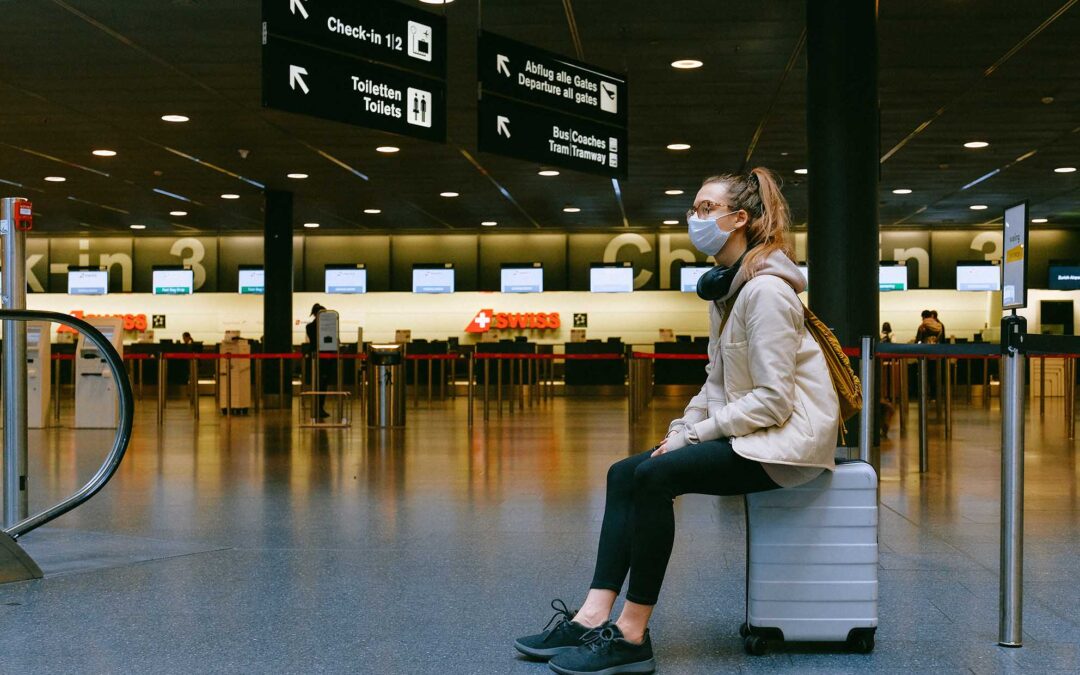The impact of the coronavirus on higher education across the world continues to be felt. However, recent surveys have shown that the majority of Indian students do not plan to change their study-abroad plans despite logistical, administrative, and health concerns.
According to a British Council estimate, 57% of Indians applying to universities abroad were unlikely to cancel or delay their study plans. While the concern related to the coronavirus is apparent and real, the risks differ according to education destinations. One of the great advantages that Germany has over other desired destinations (like the USA or the UK), is the relatively affordable tuition fees across universities in the country even for international students. This cost difference to the USA and the UK reduces the risk for students as they find the financial burden more manageable.
Coronavirus Impacts
The biggest change with the onset of the pandemic is of course social distancing norms and the switch to online lessons. While this has become more acceptable as the pandemic waves continue, prospective international students have concerns about the impact on their educational experience such as the inability to converse and make connections with other students from different countries.
Further, the impact has raised worries about the level of interaction that students can have with their university professors and internship/job opportunities. While online courses have become more accepted, it is salient for universities to take steps to educate prospective applicants on how these lessons would be held and possibly provide them with concrete examples to help assuage any concerns.
German universities, on their part, have taken multiple steps to ensure that international students are kept informed on the specific changes and Covid-19 norms on their premises and region. In addition, many universities and regions have been praised for being generous in their support to international students and the unique difficulties they face by being away from home and isolated, whether in financial aid or otherwise.
Changes in application processes
Depending on the region the university is situated in, there may be different social distancing norms and requirements for international students going to Germany. This may include a 14-day quarantine if the student arrives from an area of high risk to mandatory RT-PCR tests and vaccination or recovery certificates.
Once again, depending on the region and the status of coronavirus in Germany, universities have made some changes to the application process. Some may have become a little more flexible with the process such as not demanding that hard copies of documents be sent, as a way of understanding that students across the world have struggled to complete administrative tasks with lockdowns ongoing in their home countries.
In 2020, this has been seen as a challenge for Indian students, who despite having got accepted by universities, struggled to get their visas on time due to embassies being closed or understaffed temporarily.
Universities should focus on providing further information through their websites and FAQ pages and have improved in providing support to prospective students with some even allowing international students to join their courses online without a visa.
Tuition Fees
While Germany has always been known to provide highly competitive pricing for higher education, when compared to universities in the UK and USA, there are a couple of universities that have made changes to their fee structures due to coronavirus.
In most cases, the calls to change the fees have been from students going to other destinations as they feel that a switch to online courses should naturally reduce the tuition fees. Instead in Germany, the worry or risk has been minimal as the regional governments and universities have done so well to keep education low-cost even for international students.
Working in Germany
One of the biggest sources of worry amongst prospective Indian students planning on Germany as their desired destination has been the impact of coronavirus on their opportunity to find internships, jobs, and achieve permanent residency.
Indian students, recently surveyed, considered the opportunity to work in German companies and the field of their expertise, as one of the single biggest desirable factors of choosing Germany as their destination for higher education. More recently, the government has helped by clarifying processes and allowing international students 18 months to find a job after graduation, with less restrictive visa processes.
The onset of the Covid 19 pandemic, brought up questions on whether
(a) Visas would be harder to get?
(b) Will the impact on the economy make it more difficult to get internships and jobs?
(c) Will the government encourage the hiring of other nationalities over non-EU students?
(d) Will they be considered a “Covid batch” and therefore somehow, less capable?
All these sources of concerns were relevant and individual universities and governments should take steps to answer these frequently asked questions clearly on their websites to help students with their decision-making process. Further, universities should take steps to assuage fears in some students about opportunities given to “Covid batches” by reassuring them about the approach to fairness in hiring and other solutions.
In the end, the larger picture prevailed and Indian students were quite confident about how Germany has handled the pandemic and thought that the Germany economy is more resilient and therefore, will be quicker to recover from the effects of the pandemic.
Jobs
While it is true that in some cases, in 2020, students were lost internship or job opportunities due to lockdowns and the pandemic having affected businesses and resulting in hiring freezes, this has largely been dealt with by universities being supportive of international students.
In some cases, regional governments in Germany have realized that international students weren’t able to continue with jobs (part-time) and internships and were generous in their financial support while waiting for the coronavirus situation to improve.
We could conclude and say that while all fears and concerns are based on some level of truth, for the most part, these have been individual situations. Indian students did naturally see a drop in movement in 2020, due to complete lockdowns in India and Germany and therefore, associated challenges in logistics and administrative tasks to shift.
However, the confidence has returned and both countries have worked hard in achieving some level of stability to allow normal life to return. The economy has also seen growth further enhancing confidence in students to not change their study plans.
Have questions about migrating to Germany? Drop us a line & have your questions answered by higher education veterans.


Recent Comments